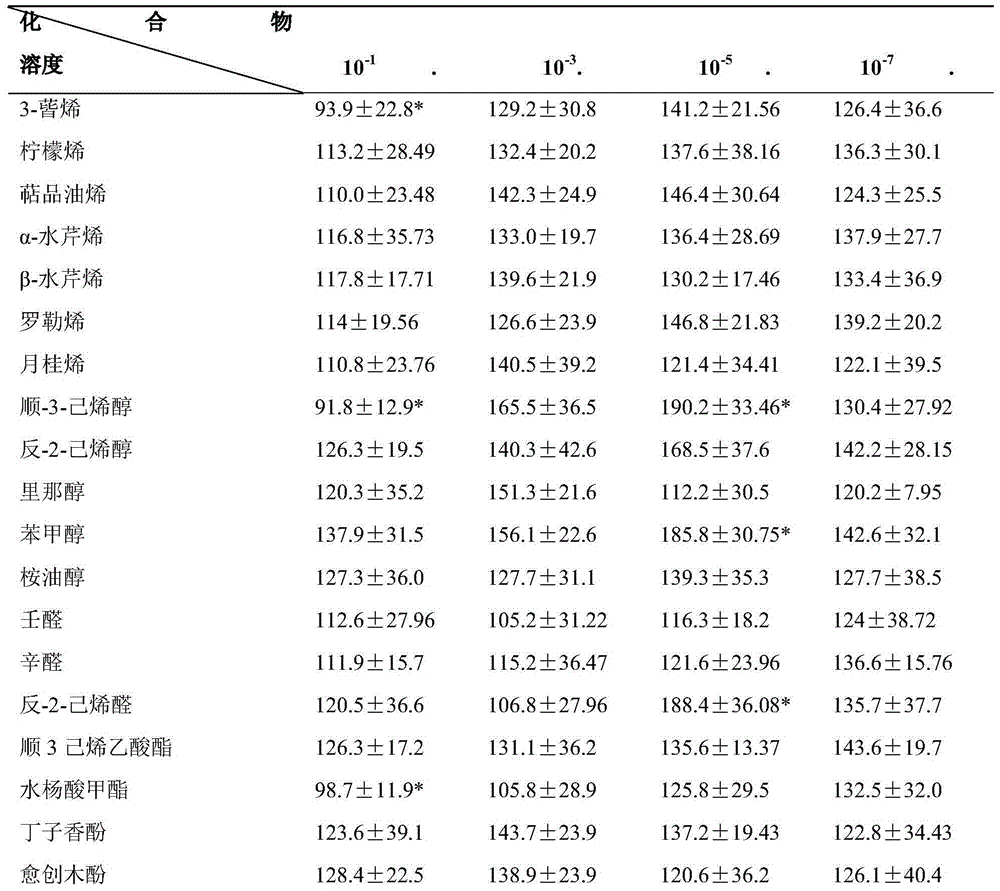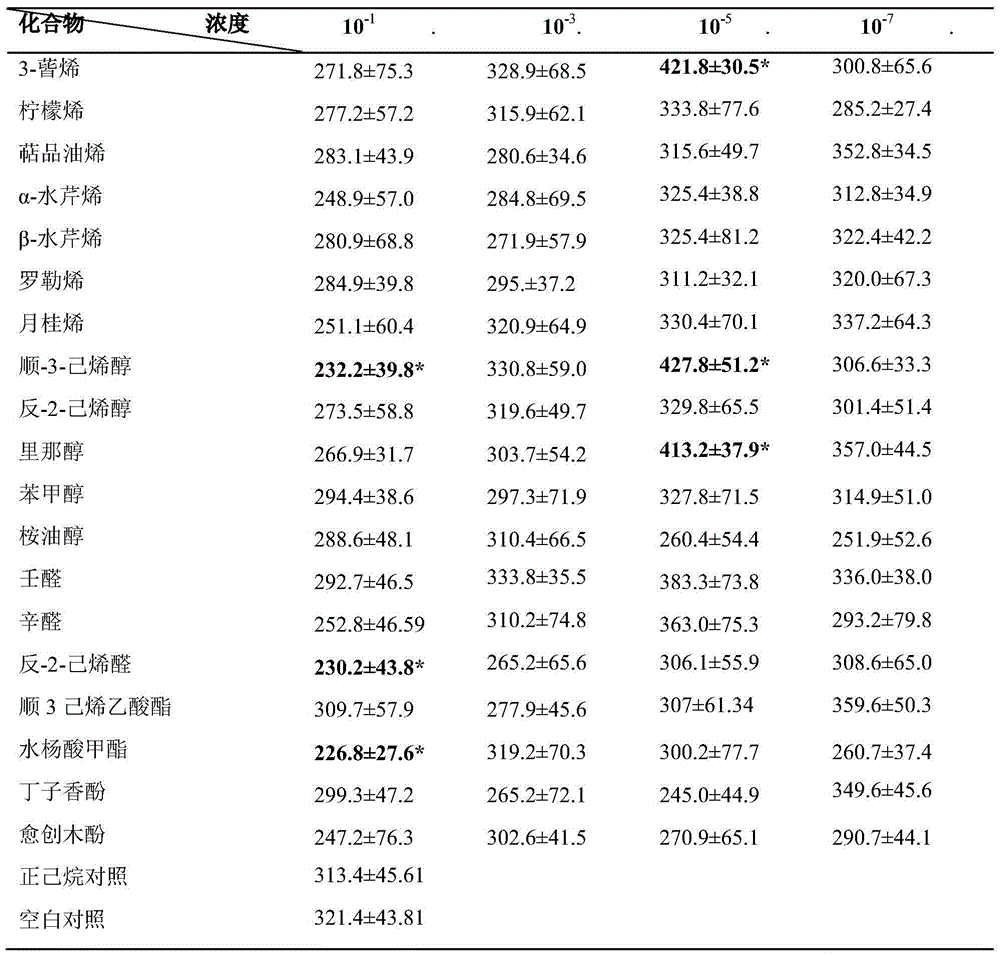Plant volatile matter imitation attractant and pesticide thereof
A technology of plant volatiles and attractants, which can be used in attracting pests, plant growth regulators, and repellents, and can solve the problems of pesticide residues, natural enemies, and non-target biological damage, and achieve low cost and easy transportation , Ease of use
- Summary
- Abstract
- Description
- Claims
- Application Information
AI Technical Summary
Problems solved by technology
Method used
Image
Examples
Embodiment 1
[0055] Nineteen volatile compounds were isolated and identified from robust tomato shoots by adsorption method. Make a hollow glass column with small openings with a diameter of 6-10 mm at both ends, with a volume of 4.5-5.5 liters. The inlet is connected to a compressed air bottle, and the outlet is connected to a Tenax TA adsorption column and a vacuum pump in turn. Before adsorbing volatiles, activate the Tenax TA column with nitrogen at 270-280°C for 4-8 hours, add 190-210 grams of strong tea leaves into the glass container, blow in air, and at the same time draw air from the adsorption column, Flow meters are used to control the flow before and after the Tenax TA column, and the flow rate of the inlet and outlet is 300 ml / min.
[0056] After 12 hours, the adsorption column was removed, rinsed with redistilled ether, and then slowly purged with nitrogen to 20 microliters, and 1 μL was injected into GC-MS for detection, and the components were identified with standard sampl...
Embodiment 2
[0059] Prepare the attractant lure core in the following way, to carry out the field experiment of embodiment 3 and 4: 1) use normal hexane as solvent, 3-carene, limonene, terpinolene, α-phellandrene, β-water Apirene, Ocimene, Myrcene, Cis-3-Hexenol, Trans-2-Hexenol, Linalol, Benzyl Alcohol, Eucalyptol, Nonanal, Octanal, Trans-2-Hexenal, cis-3-hexene acetate, methyl salicylate, eugenol, and guaiacol were formulated into flavor sources with a concentration of 0.0001-100 μg / ml, and then the flavor sources that had the effect of attracting Bemisia tabaci The three flavor sources with repellent effect on Bemisia tabaci were combined at 0.5-1:0.5-1:0.5-1.
[0060] 2) Soak the rubber head made of natural rubber with absolute ethanol for more than 24 hours, dry, then soak such rubber head with attractant for 24 hours, and then make the lure core.
Embodiment 3
[0061] Example 3 Field Biotest
[0062] This experiment was completed at the Yucheng Experimental Base of the Chinese Academy of Sciences in Nanbeizhuang, Yucheng City, Shandong Province.
[0063] From June to July 2013, 19 kinds of volatile compounds 3-carene, limonene, terpinolene, α-phellandrene, β-phellandrene, ocimene, myrcene, cis -3-Hexenol, Trans-2-Hexenol, Linalol, Benzyl Alcohol, Eucalyptol, Nonanal, Octanal, Trans-2-Hexenal, Cis-3-Hexenyl Acetate, Salicyl Acetate methyl ester, eugenol, guaiacol, with n-hexane as solvent preparation of 10 -1 、10 -3 、10 -5 、10 -7 The concentration solution is used as the lure component. A blank yellow board and a yellow board hung with n-hexane lures were used as controls. A total of 78 different lures were used, and each treatment was repeated at least 6 times to test the lure effect of various lures on whitefly and whitefly in the greenhouse.
[0064] Data processing: The significant difference of the average value was analyze...
PUM
 Login to View More
Login to View More Abstract
Description
Claims
Application Information
 Login to View More
Login to View More - R&D
- Intellectual Property
- Life Sciences
- Materials
- Tech Scout
- Unparalleled Data Quality
- Higher Quality Content
- 60% Fewer Hallucinations
Browse by: Latest US Patents, China's latest patents, Technical Efficacy Thesaurus, Application Domain, Technology Topic, Popular Technical Reports.
© 2025 PatSnap. All rights reserved.Legal|Privacy policy|Modern Slavery Act Transparency Statement|Sitemap|About US| Contact US: help@patsnap.com



